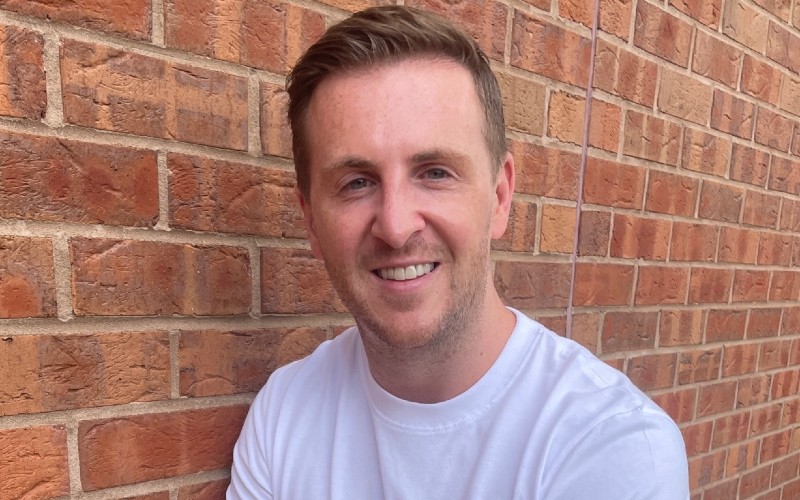Entrepreneur Tom Gardner had been enjoying a career break following his exit from Manchester-based Robiquity when he was hit by the opportunity of a lifetime.
Gardner founded Robiquity in 2016 with Chris Wright and Jack Rimmer to meet the growing demand for robotic process automation (RPA).
For six years he helped grow the business to £10m turnover and 100 staff, with operations across North America and the Middle East, building an impressive list of clients including Virgin Media, Finastra and Jaguar Land Rover.
When Growth Capital Partners invested in 2022, Robiquity was valued at £50m and Gardner decided to exit, although he remains a minority shareholder.
Gardner spent time with his young family and even bought a couple of racehorses but the speed of the advances in generative AI meant he decided to cut short his career break and work on a new business idea.
“Most people expected me to take time out but when generative AI came out I knew I couldn’t wait,” he said. “If I’d waited any longer the opportunity would have been lost.”
Today he’s back with his new company – generative AI-based Fireflai – which he believes has the potential be a global name.
Fireflai is a B2B SaaS platform and Gardner co-founded the business with CTO Craig Sumner, who previously worked for Deloitte and Rubix.
Laura Malins, formally VP of Product at Manchester-based unicorn Matillion, and James Clarry, ex-chief operating officer at the private bank Coutts, have been appointed non-executive directors.
The startup uses generative AI to allow companies to make better use of their data and is already working with a range of businesses.
Gardner said: “Generative AI can validate 40 million lines of data within 48 hours. The potential is limitless.
“It combines the best of traditional machine learning and data science with a sprinkle of generative AI to solve complex, product data issues.”
He describes Fireflai as a ‘data cleanser’ that makes data usable to drive better decision-making.
The startup is already working across multiple sectors, including construction; distribution; manufacturing; and eCommerce.
Gardner explained: “Imagine a fast-moving consumer goods business with two distinct databases, each with 20 million products in each.
“When you combine the two databases together you realise you have 650,000 duplicated products. The product description could be in different languages and the products might not match the descriptions.
“Some products may not appear on the website at all so customers are ordering goods that don’t exist.
“The issue is companies just don’t have the manpower to process the data accurately or the budget to employ a digital scientist.
“That’s where we come in. FireFlai works by pulling in the data from the customer. It then passes that through a machine learning and data science model.
“Finally generative AI looks at it like a human would to identify gaps but in a fraction of the time and at a fraction of the cost. It’s a game-changer.”
Fireflai is one of 12 companies selected by Praetura Ventures to take part in its PraeSeed programme, a new initiative designed to identify the most promising startups in the North of England and support them with equity funding.
Fireflai has been completely bootstrapped to date but is currently looking to raise between £500k-£700k.
Gardner said he’ll be using the experiences he built up with Robiquity in growing his new startup.
In 2016 he joined forces with Jack Rimmer and Chris Wright to set up Sinew Group, before quickly rebranding as Robiquity.
Gardner’s career in tech is light years away from his early career as a qualified joiner and recruiter.
Robiquity was created to meet growing demand for Robotic Process Automation (RPA).
Praetura selects 12 Northern startups for PraeSeed programme
RPA is a software technology that allows businesses to use virtual robots to replace human workers in repetitive tasks.
Gardner explained: “We got together to plug a gap in the market for robotic process automation skills. At the time Blue Prism were the leading RPA vendor.
“When we were looking for candidates for clients there was loads of client demand for skills but there were no candidates.
“We were specialising in RPA recruitment and we noticed that demand outstripped supply.
“In 2016 there was a huge shortage of RPA developers. We approached Blue Prism, who were the leading vendor at the time of RPA and were a unicorn based out of Birchwood, Warrington. We suggested becoming a training partner of Blue Prism.
“Initially we created a training programme around Blue Prism and we started running the RPA development bootcamps.”
The company built partnerships with the market’s leading vendors; Blue Prism, UiPath and Microsoft and quickly became a global name.
Gardner decided the investment by Growth Capital Partners in 2022 was the right time for him to walk away.
“My role in a company is at the founder stage where you can do 1,000 things at once,” he recalled. “Then it reached a critical mass. That suits some people but it didn’t suit me.
“When the opportunity came to financially exit it tied in with generative AI becoming mainstream.
“Robiquity had pivoted from a recruitment company to a training business to a consultancy. When generative AI became mainstream I wanted to build a SaaS-based product business.
“We want to make generative AI and machine learning AI as assessable as possible and quick to deploy without the up-front commitment that you’d spend with a big consultancy. You experience the results before you pay us.
“We run the data and give the results back to the customer.
“The initial vision is to have 100 customers with 36 months on a subscription model rather than charge huge up front fees.
“Moving out of consultancy into product is really exciting. It’s another world to what I was used at Robiquity. We’ve engineered our technology so it can scale to thousands of customers and it can be turned on globally at the flick of a switch.”


